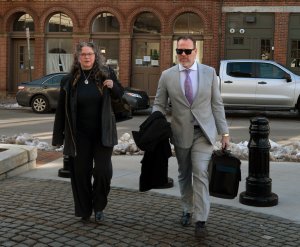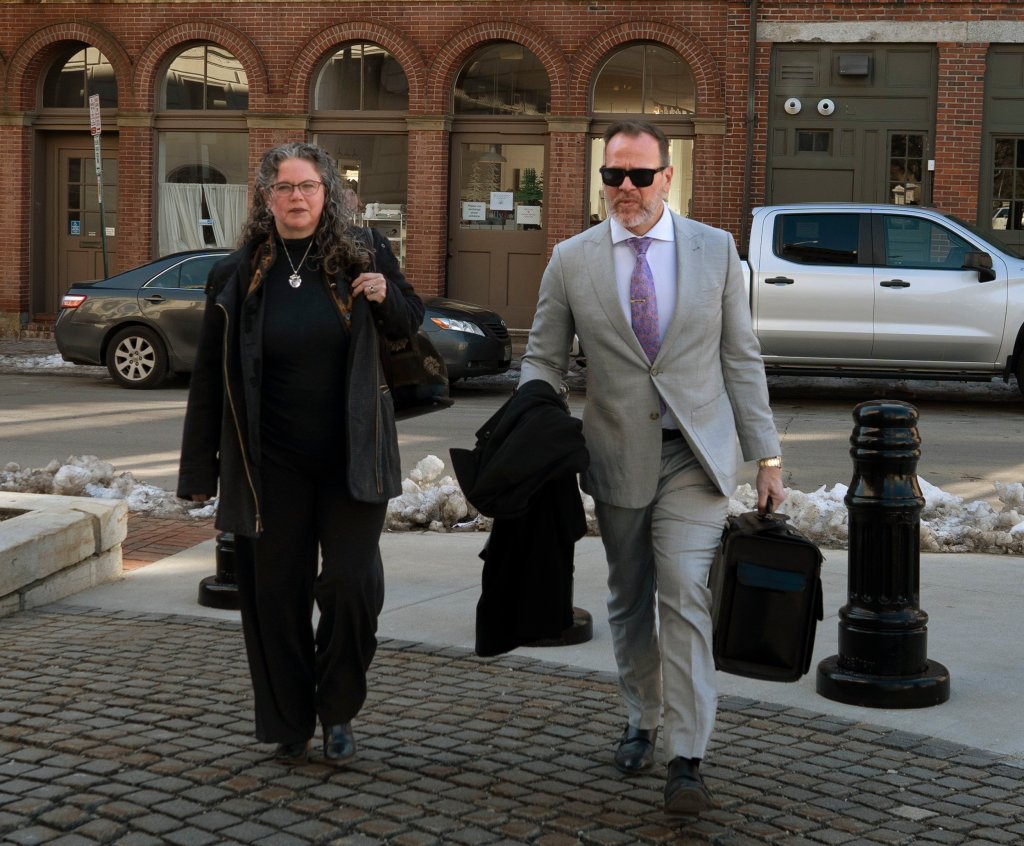Several patients of a Kennebunk doctor accused of overprescribing opioids are defending him, saying the doctor saved them from years of severe pain.
Dr. Merideth Norris sat before three of her patients Monday in U.S. District Court in Portland, where she was on trial for 16 counts of unlawful distribution of controlled substances involving prescription medications.
Each charge represents prescriptions Norris wrote to five other patients in 2021 and 2022. Prosecutors allege those prescriptions were written without legitimate purpose and outside the scope of ordinary medical practice, putting Norris’ patients at risk of overdose.
At the end of the trial after a week of testimony, prosecutors did not call to testify any of the five patients at the center of Norris’ case, whose names have not been made public because sensitive health information would be shared.
U.S. District Judge Nancy Thoresen allowed the three patients to testify in Norris’ defense, over the prosecution’s objections.
Unlike the five patients at the center of the Norris case, none of them said they had a history of opioid use disorder, but they had all been prescribed similar types of opioids for chronic pain.
One patient who spoke has rheumatoid arthritis, another survived a car accident in 2013 that left him with several broken vertebrae and a collarbone, and a third has dealt with chronic pain for most of his life since falling off a bridge as a child.
While other doctors wanted to reduce or substitute opioids, Norris continued to prescribe them, but at lower doses, and patients said they felt he listened to them more than others.
“She made me feel like I was the most important person in the conversation,” patient Bonnie Collins said. “I always felt comfortable in her office.”
“There’s always pain”
Prosecutors argue that Dr. Norris was an anomaly among Maine doctors: Not only did he have one of the state’s highest rates of opioid prescribing, they also allege that he received multiple warnings from insurance companies and pharmacies that his prescription drugs could be dangerous.
Prosecutors said she prescribed opioids in combination with other drugs that increased patients’ risk of overdose and ignored signs that patients were passing on opioids to others.
Dr. Timothy E. King, who reviewed the patient records of the five people named in Norris’ indictment at the request of prosecutors, told jurors last week that he believed Norris was writing those prescriptions for pain that opioids could not treat.
But Collins and other patients who testified Monday said Norris has certainly made a difference.

Dr. Merideth Norris of Kennebunk walked into federal court in Portland with her attorney, Tim Zerrillo, in February to face 16 charges of illegally prescribing opioids. Gregory Reck/Staff Photographer
Collins said another doctor first prescribed OxyContin to treat her arthritis in the 1990s, and she started on 80 milligrams, what’s now considered a high dose.
Norris continued to prescribe opioids to Collins after her first doctor retired. Collins said some in her family were worried because more people were discovering the drugs were addictive. But she said the pills allowed her to travel and help her husband with yard work.
Norris has been banned from prescribing since his arrest in October 2022, and Collins says she was unable to find another prescriber, forcing her to “abruptly” wean herself off the medication.
“I’m in pain all the time,” she said. “No matter what I do, I know I’m going to wake up in pain tomorrow morning. … It’s exhausting for me to get up and go out and do anything.”
No regrets
Norris’ lawyers also consulted with Dr. Katherine Brandt, who teaches at the University of New England and met Norris during his medical residency.
Brandt said he referred one of the five patients charged to Norris because the patient was about to lose his health insurance.
Dr. Brandt said Dr. Norris had already treated dozens of patients in similar situations and was least likely to turn her away. Dr. Brandt acknowledged that he had not reviewed Dr. Norris’ records or prescription history for this patient.
King had testified the previous day that records showed Norris continued to prescribe methadone to patients and continued to do so even after he received reports that Norris was giving the drug to others and using other illegal drugs.
Still, Brandt said he trusted Norris’ judgment.
“As you sit here today, do you regret sending Patient No. 4 to Dr. Norris?” asked attorney Amy Fairfield.
“I don’t think so,” Brandt said.
Copy story link
” previous
Maine Supreme Court justice defends judge’s decision to lower Lewiston man’s bail
Related article


